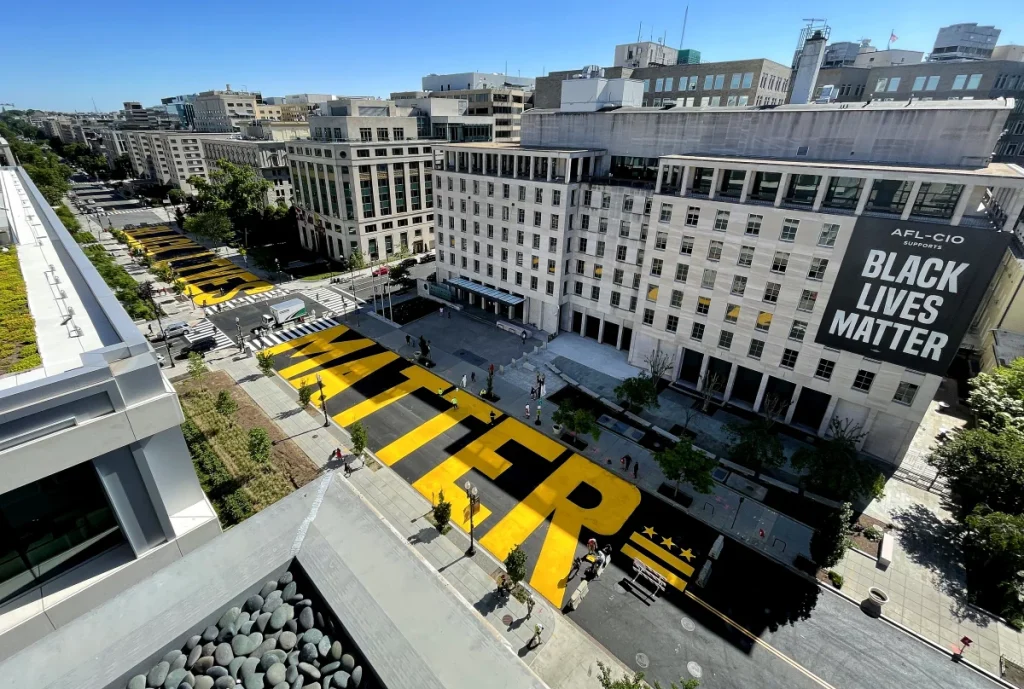Once celebrated as a steadfast leader in the face of President Donald Trump’s policies, D.C. Mayor Muriel E. Bowser now finds herself navigating a political tightrope.
As Trump reasserts his influence and congressional Republicans intensify their scrutiny of the District, Bowser’s recent moves have sparked debate over her approach to preserving the city’s limited self-governance.
A defining moment in Bowser’s tenure came in 2020 when she ordered the creation of Black Lives Matter Plaza, a bold rebuke to Trump’s handling of racial justice protests.
The two-block-long mural, widely praised and even referenced in her reelection campaign, symbolized her defiance against federal overreach. However, in a striking reversal, Bowser recently announced plans to paint over the lettering after a Republican lawmaker threatened to cut highway funding in response.
Bowser’s decision underscores the pragmatic, low-profile strategy she has adopted since Trump’s return to power. Unlike other Democratic leaders who have vocally opposed Trump’s actions—such as his mass pardoning of Jan. 6 rioters—Bowser has refrained from direct criticism. She has also distanced herself from controversial terms like “sanctuary city,” removing references to it from D.C.’s government website.

The mayor has defended her measured approach as a necessary maneuver to protect the city’s financial stability and policy-making autonomy.
“I think if we follow that type of cadence, we’ll be in a dizzying routine of responding to things and not acting on those things that we control,” Bowser told reporters.
Yet, her political calculus carries risks. As Trump-appointed officials continue to exert pressure on D.C. governance—such as Transportation Secretary Sean P. Duffy’s recent demand for compliance with federal roadway regulations—some local leaders worry that Bowser’s tempered stance may embolden further encroachments on the city’s autonomy. D.C. Attorney General Brian Schwalb, for example, has joined a lawsuit with 19 states opposing Trump’s federal workforce reductions, signaling growing resistance within the local government.
Critics argue that appeasement will not shield the District from Republican intervention.
“History has shown that giving in to bullies emboldens them for bigger attacks,” said D.C. Council member Brianne K. Nadeau (D-Ward 1) after Bowser’s BLM Plaza announcement.
The tension between Bowser’s strategic restraint and the demands of her constituents remains a pivotal issue as she navigates her third term.
Political observers note that D.C.’s history with Republican oversight—from the financial control board imposed during Mayor Marion Barry’s administration to more recent congressional overrides of local legislation—suggests that federal intervention is not easily deterred.
As the political landscape shifts under Trump’s renewed leadership, Bowser faces the challenge of balancing pragmatism with advocacy. Whether her current approach will safeguard D.C.’s interests or invite further federal encroachment remains to be seen.
